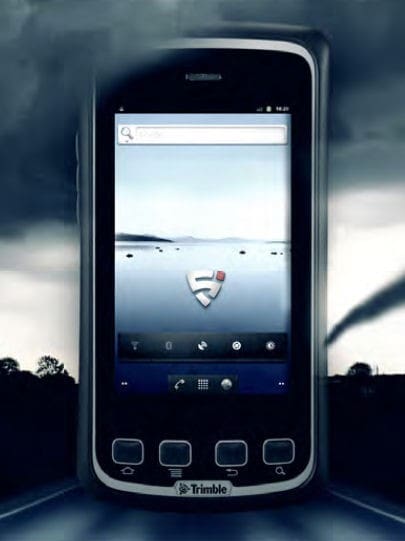Cummings Engineering, in partnership with Ascent Rugged Mobile, is launching SAIFE Defender, what they are touting as the world’s first commercial rugged Android device with secure digital communications at this week’s HALO Counter-Terrorism Summit in San Diego California.
SAIFE Defender, a rugged mobile Android device with interoperable secure communications capabilities, is unique and cost-effective because it is platform neutral; field officers can communicate securely with each other even if they are using different devices, such as a Blackberry, iPhone or Droid. Additionally, agencies don’t have to invest in unique radio infrastructure but instead can securely leverage existing commercial carrier networks such as Verizon, AT&T, and others.
“We want to be the Swiss Army Knife of secure mobile applications for the military and law enforcement communities,” said Darren Cummings, CEO, Cummings Engineering. “Our product is truly BYOD, Bring Your Own Device, giving users the ability to leverage commercially available hardware and software to operate on any commercial network, cellular or WiFi and remain secure and protected.”
Additionally, specialized applications are built on top of Cummings’ secure framework offering government users capabilities they didn’t previously have or couldn’t use due to the lack of security.
The underlying technology that encrypts, stores and transmits the data has been accredited by the National Institute of Standards & Technology (FIPS 140-2). This allows the U.S. government and other regulated industries such as medical services that collect, store, transfer, share and disseminate sensitive information to quickly and cost-effectively use the modules and security capabilities Cummings offers.
Tags: Ascent Rugged Mobile, Cummings Engineering, HALO Counter-Terrorism Summit



Cool. I wonder if you can make individual purchases.
Just to drag out an old dog and kick it a bit..
Off the self parts and encryption, makes something like Tac Nav a lot more ‘sexy and safe’. That is assuming the encryption product is secure. Looks promising, I wonder how this functions on third world (Afghan) networks. As the encryption likely increases bandwidth severely, especially if they are doing encrypted VOIP for the ‘secure phone calls’. Most networks out there can handle SMS, many don’t do MMS or internet, so VOIP calls are impossible.
Older link, tech I really like, with the caveat of there is no data security.
https://soldiersystems.net/2012/08/08/tactical-nav-news/
http://www.tacticalnav.com/
Piece on the type of security these phones use: http://www.homelandsecuritynewswire.com/srlet20120710-militarygrade-mobile-security-for-commercial-markets
Says the product SAIFE: “The technology leverages military grade encryption, known as the Suite B algorithms from the National Security Agency (NSA), to apply high grade security to the commercial market.”
Company page: http://cummings-inc.com/products/secure-mobile
Other details about product offerings here: http://www.chandleraz.gov/newsrelease.aspx?N_UID=2365
I am not sure if Swiss was asking any questions about the technology; however, here are a couple of points I would like to make about the technology to address his/her comments:
1) The technology is transport agnostic and so can work on an Afghan network (either self contained or open) without any issues.
2) The cryptographic overhead on a VOIP call is less than 7ms of overhead which allows voice calls over the data channel to occur with latencies undetectable by the humans making the call.
To answer John’s question, the technology can be purchased commercially but will not be of any value if the person on the other side of the call doesn’t have the same technology. Secure calls require a base security infrastructure that has to be present on all devices communicating in the secure group or enclave.
I hope this helps clarify some of the comments/questions about the technology.